The Agenda and Session Leader information below is for the 2023 Folklife in the South gathering, which will be held in Guntersville, Alabama on June 8-10, 2023.
The content below is subject to change.
Get ready for FITS 2023 with our Know Before You Go and Print-at-Home Agenda!
Download the PDFThursday June 8 Friday June 9 Saturday June 10 Session Leaders
Registration desk will be open.
This panel explores Alabama's long history of women working within both the formal and informal economies to provide for their families through sewing. Fiber arts have long been a source of creativity, a declaration of self-determination, and a cornerstone of care. This panel will highlight Alabama women's historic contributions and engage with present-day women-led organizations who infuse this legacy into their own activism, scholarship, and economic pursuits.
Session Leaders:
Sponsored by the Southern Foodways Alliance, this panel features Sarah Rodriguez, SFA’s lead oral historian, in conversation with three women who teach, preserve, and document diverse and changing foodways in Alabama.
Session Leaders:
BharathaNaatyam (bha-ra-tha-naat-yum) is a 2,000-year-old performing art form from South India. The vocabulary of this dance is extremely technical, and the outcome divine in nature. However, in recent years, performers have experimented with the language of the dance to convey various messages. Sushma Mohan uses this dance form that she has practiced and performed for over 30 years to present a new project, AMMA, meaning mother.
During the COVID-19 pandemic, work-from-home moms struggled between computer jobs and motherly duties. Sushma uses a traditional piece to depict how, in Puranic times, the divine mother battled demons and won, while in the contemporary world, every woman fights in her daily life to make her family and the world a better place.
Session Leaders:
Use this time to connect with your colleagues or relax before dinner.
Meals will be provided for attendees. Please contact us in advance of the Folklife in the South gathering if you have any dietary concerns.
Use this time to connect with your colleagues or relax before the next session.
Following the films, the filmmakers will hold a Q&A with attendees with Teresa Hollingsworth as discussant.
The Mountain Fiesta: Bridging the Gap and Building Community in Rural Appalachia is an engaging 17-minute mini-documentary that showcases and explores The Mountain Fiesta, a seven year-old festival in Cumberland Gap, TN. Created by Zachary Greene and his high school Spanish students at Lincoln Memorial University, the project aims to build and maintain cultural bridges through arts and music. The annual festival was documented by Iximche Media, whose work has been featured by Rolling Stone. Iximche Media is Roderico Y. Diaz, an indigenous Mayan Kaqchikel independent photojournalist and documentarian, and Emily Rhyne, a Latin Americanist and international human rights advocate.
Filmmaker: Zachary Greene, Lincoln Memorial University
Appalshop recently completed four short films documenting regional Appalachian traditional artists. This series captures, archives, and amplifies the stories behind the craft. Our focus was in the following mediums: traditional music, storytelling, crafts, woodworking, and foodways. Appalshop’s documentary work has from the beginning told authentic stories of Appalachia, working from within the community to banish stereotypes and misrepresentations. The short films in this series are:
Filmmaker: Ethan Payne
Appalshop Curatorial Team: Kathleen Byrne, Willa Johnson
Succession planning is vital to ensure organizational continuity in leadership, operations, and programs. Whether planning to retire, making a job change, serving on a board, or just interested in learning more, join us to discuss strategies for planning for the future.
Sessions Leaders:
Registration desk will be open.
Meals will be provided for attendees. Please contact us in advance of the Folklife in the South gathering if you have any dietary concerns.
While tradition is often positioned as a remaking of the past in the present, how might our collaborative work with cultural communities benefit from a future-focused approach? How can adopting a visionary outlook benefit our work in the present, helping us better address community needs and cultural self-determination?
Alabama artists and activists Sehoy Thrower, Mary Godfrey, and Susan Walker will engage in conversation around how their present work is shaped by a dynamic vision of their community’s future. Attendees are invited to envision alternative futures and will leave with strategies for how to be more creative collaborators and allies for collective liberation.
Session Leaders:
This performance explores the fiddle music brought to the Gulf Coast by Greek sponge divers and merchants from the Aegean islands in the early twentieth century. Focusing on the communities of Tarpon Springs, Florida, Mobile, Alabama, and New Orleans, Louisiana, it will discuss and demonstrate various styles and techniques and explain the music's connections to the sponging and fishing industries that these islanders founded and have maintained over the last century.
Session Leaders:
How do we train the next generation of folklorists and culture workers? This panel explores two sites of education beyond dedicated folklore or folk studies academic departments.
For 21 years, Arkansas State University has hosted the Heritage Studies Doctoral Program and six Arkansas State Heritage Sites. Activities at these sites include research and interpretation of local history and culture. The university’s approach to heritage includes the management of broadly-based cultural and historical resources. In both programs, folklore and oral history are integral to various projects. The presentation will demonstrate ways that public folklore can support Heritage Studies in other regions and other communities.
Throughout the United States, Community Scholars programs have been an important part of the outreach and education practiced by public folklorists for over 40 years. This session presents an overview of the Kentucky Folklife Program’s recent re-evaluation of the Community Scholars model they have used since 1999.
Session Leaders:
Meals will be provided for attendees. Please contact us in advance of the Folklife in the South gathering if you have any dietary concerns.
The Day of the Dead, known as Día de Muertos in Spanish, is a beautiful cultural tradition that has been celebrated in Mexico since before the arrival of Spaniards. On this Mexican holiday, people remember and honor their deceased loved ones; this is a celebration of life.
This workshop will teach about the real meaning of Día de Muertos. We will teach the elements of this celebration, what an altar is, how to build an altar, and the history of the Day of the Dead. Participants will learn about the traditions and meanings surrounding Día de Muertos and how to do Catrina face painting and make paper flowers for their own altars.
Session Leaders:
Since 2017, the University of South Carolina’s McKissick Museum has partnered with the South Carolina State Fair, the Eastern Cherokee, Southern Iroquois, and United Tribes of South Carolina, and the Wassamassaw Tribe of Varnertown Indians to host FOLKFabulous, a 12-day celebration of Southern folklife. Together, partners in this project will discuss the festival’s origins and their collaboration’s future, with first-hand experiences of how this event can bring together communities and wide audiences to promote folklife in the South.
Session Leaders:
In this information session, staff from the Library of Congress will provide overviews of various opportunities for funding, participatory projects, and public engagement such as the Veteran's History Project, Community Collections Grant, and Teaching with Primary Sources.
Session Leaders:
Use this time to connect with your colleagues or relax before dinner.
Members of South Arts’ Emerging Traditional Artists Program cohort are invited to gather informally to share their work, discuss the FITS gathering so far, and discover opportunities for collaboration.
Meals will be provided for attendees. Please contact us in advance of the Folklife in the South gathering if you have any dietary concerns.
Use this time to connect with your colleagues or relax before the next session.
The Gary Waldrep Band will perform an hour of traditional bluegrass music. Gary Waldrep, the founder, is from Kilpatrick, Alabama. He has participated in the Alabama State Council on the Arts apprenticeship program and touring arts program.
Session Leader:
For years, blues artists have not only performed the traditional art of African American Roots music but also utilized the methods of folklorists to preserve and share the Blues People's narrative. This panel features Alabama's traditional Blues artists who have participated in apprenticeships, created nonprofit organizations, and more to ensure preservation. Panelists will discuss their experience, outcome, and plan for blues sustainability, culminating in a Blues performance.
Session Leaders:
Registration desk will be open.
Meals will be provided for attendees. Please contact us in advance of the Folklife in the South gathering if you have any dietary concerns.
The Veterans History Project of the American Folklife Center at the Library of Congress will offer a workshop that covers:
Session Leaders:
Two Alabama traditional artists will talk about their experiences and give a hands-on demonstration of their crafts for participants. Gwen Chafin is a white oak basket maker and chair caner from Arab, Alabama. Jason Russell is a duck decoy carver from Gadsden, Alabama.
Session Leaders:
Goodbye from the 2023 Folklife in the South partners, and thank you for attending!
Come enjoy Northeast Alabama Community College's 18th Latino Festival with a mariachi band, dancers, children's activities, a climbing wall, pony rides, a dunking booth, and jump houses. Latino vendors will sell delicious foods and beverages. Admission is free!
Calling all Georgia FITS participants! Please plan to attend the Georgia Council for the Arts Networking Roundtable on Saturday, 12:30-1:30 PM. Join us for networking and to be part of the Council's ongoing work in the folk and traditional arts.
Meet the Session Leaders for the 2023 Folklife in the South gathering.
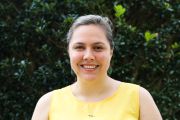 Annemarie Anderson is the Director of the Alabama Center for Traditional Culture, a division of the Alabama State Council on the Arts, in Montgomery, Alabama. Her documentary and academic work focuses on southern foodways, place, and culture.
Annemarie Anderson is the Director of the Alabama Center for Traditional Culture, a division of the Alabama State Council on the Arts, in Montgomery, Alabama. Her documentary and academic work focuses on southern foodways, place, and culture.
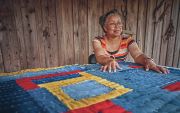 Loretta Pettway Bennett is a fifth generation Gee’s Bend quilter whose ancestry can be traced back to Dinah Miller, one of the first slaves to have arrived in Gee’s Bend, Alabama. Loretta started trying to sew at age five and by the age of twelve had made her first quilt - A Flower Garden - an advanced design with octagonal shaped blocks, entirely by hand. She is known for her bold colors and staying true to the characteristics of most Gee’s Bend quilts made with used clothing from family, friends and thrift stores.
Loretta Pettway Bennett is a fifth generation Gee’s Bend quilter whose ancestry can be traced back to Dinah Miller, one of the first slaves to have arrived in Gee’s Bend, Alabama. Loretta started trying to sew at age five and by the age of twelve had made her first quilt - A Flower Garden - an advanced design with octagonal shaped blocks, entirely by hand. She is known for her bold colors and staying true to the characteristics of most Gee’s Bend quilts made with used clothing from family, friends and thrift stores.
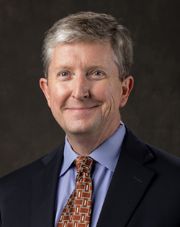 Brent Björkman is Director of the Kentucky Folklife Program and Kentucky Museum at WKU. Throughout his career as a public folklorist in Kentucky, Maine, Indiana, and Vermont he has done fieldwork and produced community-based exhibits, folklife festivals/narrative staged events, and created web content based on his fieldwork that highlighted the lives and traditions of diverse populations. This includes documenting and presenting a variety of immigrant and minority populations including members of the Bosnian, East Indian, Mexican, and African American communities. In 2013, the American Folklife Center at the Library of Congress named him (along with Jon Kay) an Archie Green Fellow enabling him to document the occupational folklore of park rangers at Mammoth Cave National Park.
Brent Björkman is Director of the Kentucky Folklife Program and Kentucky Museum at WKU. Throughout his career as a public folklorist in Kentucky, Maine, Indiana, and Vermont he has done fieldwork and produced community-based exhibits, folklife festivals/narrative staged events, and created web content based on his fieldwork that highlighted the lives and traditions of diverse populations. This includes documenting and presenting a variety of immigrant and minority populations including members of the Bosnian, East Indian, Mexican, and African American communities. In 2013, the American Folklife Center at the Library of Congress named him (along with Jon Kay) an Archie Green Fellow enabling him to document the occupational folklore of park rangers at Mammoth Cave National Park.
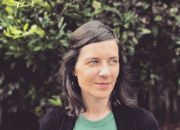 Emily Blejwas is the Executive Director of the Alabama Folklife Association. She is the author of The Story of Alabama in Fourteen Foods (University of Alabama Press) and two middle grade novels: Like Nothing Amazing Ever Happened and Once You Know This (Random House). She is the creator and co-producer of the AFA podcast, Alabama Folk, and has written for the Encyclopedia of Alabama, Alabama Heritage Magazine, Alabama Review, and Mobile Bay Magazine. She serves on the boards of the Alabama Historical Association, Alabama Visual Arts Network, and Mobile United. Emily holds an MS in Rural Sociology from Auburn University and a BA in Religion from Kenyon College. She lives in Mobile with her husband and four children.
Emily Blejwas is the Executive Director of the Alabama Folklife Association. She is the author of The Story of Alabama in Fourteen Foods (University of Alabama Press) and two middle grade novels: Like Nothing Amazing Ever Happened and Once You Know This (Random House). She is the creator and co-producer of the AFA podcast, Alabama Folk, and has written for the Encyclopedia of Alabama, Alabama Heritage Magazine, Alabama Review, and Mobile Bay Magazine. She serves on the boards of the Alabama Historical Association, Alabama Visual Arts Network, and Mobile United. Emily holds an MS in Rural Sociology from Auburn University and a BA in Religion from Kenyon College. She lives in Mobile with her husband and four children.
 Kathleen Byrne joined Appalshop in 2020 as Development Director. She graduated from the University of North Carolina School of the Arts with a B.F.A in Filmmaking with a concentration in film producing. She later earned her M.A. in Arts Administration from the University of Kentucky. Before joining Appalshop, she spent time working for the Charlotte Regional Film Commission in Charlotte, N.C. There she helped recruit such films and television shows such as Leatherheads, The Hunger Games, and Homeland. She also worked in economic development at the Charlotte Regional Business Alliance. It was through this work that she came to realize the important cross section of arts and economic development. She and her husband, Brian Warf, a Letcher County, KY native, have two sons.
Kathleen Byrne joined Appalshop in 2020 as Development Director. She graduated from the University of North Carolina School of the Arts with a B.F.A in Filmmaking with a concentration in film producing. She later earned her M.A. in Arts Administration from the University of Kentucky. Before joining Appalshop, she spent time working for the Charlotte Regional Film Commission in Charlotte, N.C. There she helped recruit such films and television shows such as Leatherheads, The Hunger Games, and Homeland. She also worked in economic development at the Charlotte Regional Business Alliance. It was through this work that she came to realize the important cross section of arts and economic development. She and her husband, Brian Warf, a Letcher County, KY native, have two sons.
 Mark Brown, the Ky. Arts Council’s folk and traditional arts director, has worked with folk artists and communities in the commonwealth since 2001, when he earned a master’s degree in folk studies from Western Ky. University. He manages the Ky. Folk and Traditional Arts Apprenticeship program, traveling exhibits, and the Ky. Peer Advisory Network. The Ky. Folklife Program works with Mark to coordinate the Ky. Community Scholars training program and network. Mark’s interests in music, writing, audio and working with tradition bearers are at the heart of his efforts with arts council goals and programs.
Mark Brown, the Ky. Arts Council’s folk and traditional arts director, has worked with folk artists and communities in the commonwealth since 2001, when he earned a master’s degree in folk studies from Western Ky. University. He manages the Ky. Folk and Traditional Arts Apprenticeship program, traveling exhibits, and the Ky. Peer Advisory Network. The Ky. Folklife Program works with Mark to coordinate the Ky. Community Scholars training program and network. Mark’s interests in music, writing, audio and working with tradition bearers are at the heart of his efforts with arts council goals and programs.
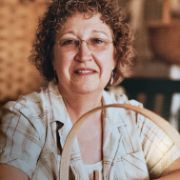 Gwen Chafin was a student of her father, Jesse Thomason, of Blount County, Alabama. He taught her to prepare white oak strips and weave baskets and bottom chairs. She was featured in the exhibit and publication Carry On by the Alabama State Council on the Arts in 2008. Cliff Pair of Odenville taught the Chafins to weave and cane chairs at the John C. Campbell Folk School in Brasstown, North Carolina, and Gwen taught at the Folk School from 2000-22. She has also enjoyed teaching classes at the Alabama Folk School at Camp McDowell. The Chafins own and operate Chafin’s Chair Caning in Arab, Alabama. At the shop, Gwen has taught her son, Jared Chafin, Jan Walker of Fairhope, and Brenda Powell of Alabaster. Gwen is a retired teacher and principal. She is an active member of the Dixie Weavers, a basket guild in Anniston.
Gwen Chafin was a student of her father, Jesse Thomason, of Blount County, Alabama. He taught her to prepare white oak strips and weave baskets and bottom chairs. She was featured in the exhibit and publication Carry On by the Alabama State Council on the Arts in 2008. Cliff Pair of Odenville taught the Chafins to weave and cane chairs at the John C. Campbell Folk School in Brasstown, North Carolina, and Gwen taught at the Folk School from 2000-22. She has also enjoyed teaching classes at the Alabama Folk School at Camp McDowell. The Chafins own and operate Chafin’s Chair Caning in Arab, Alabama. At the shop, Gwen has taught her son, Jared Chafin, Jan Walker of Fairhope, and Brenda Powell of Alabaster. Gwen is a retired teacher and principal. She is an active member of the Dixie Weavers, a basket guild in Anniston.
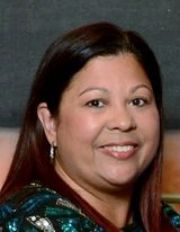 Lisa Collins graduated valedictorian from Berkeley High School and went on to get her RN in Nursing. She has worked at various hospitals throughout the state over the past 25 years and now is a Nursing Administrator at the Veterans Victory home in Walterboro, South Carolina. Lisa has received many awards and accolades throughout the years for her hard work and dedication to preserving the history and culture of her Tribe. Most recently she has been named as a 2022 History Hero from the Daniel Island Historical Society. During the early 2000s, Lisa Collins was one of the driving voices leading the charge for official Tribal recognition. Collins has been voted in as the tribal administrator and chief for the past 16 years and has served as a member of the tribal government for more than 20. After gaining Tribal recognition, Lisa has continued to push for tribal growth and recognition from the South Carolina government and general population.
Lisa Collins graduated valedictorian from Berkeley High School and went on to get her RN in Nursing. She has worked at various hospitals throughout the state over the past 25 years and now is a Nursing Administrator at the Veterans Victory home in Walterboro, South Carolina. Lisa has received many awards and accolades throughout the years for her hard work and dedication to preserving the history and culture of her Tribe. Most recently she has been named as a 2022 History Hero from the Daniel Island Historical Society. During the early 2000s, Lisa Collins was one of the driving voices leading the charge for official Tribal recognition. Collins has been voted in as the tribal administrator and chief for the past 16 years and has served as a member of the tribal government for more than 20. After gaining Tribal recognition, Lisa has continued to push for tribal growth and recognition from the South Carolina government and general population.
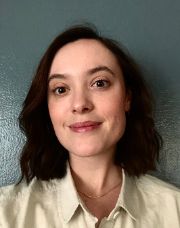 Ellie Dassler (she/her) is the Assistant Director for Traditional Arts at South Arts. She helps to facilitate South Arts’ Traditional Arts programs, including Folklife in the South and the In These Mountains, Central Appalachian Folks Arts and Culture initiative. Ellie holds an MA in Folk Studies from Western Kentucky University and a BA in Anthropology from the College of William & Mary in Virginia. Before joining South Arts, she worked and interned for the Kentucky Folklife Program, the Journal of American Folklore, the North Carolina Arts Council, and Long Island Traditions.
Ellie Dassler (she/her) is the Assistant Director for Traditional Arts at South Arts. She helps to facilitate South Arts’ Traditional Arts programs, including Folklife in the South and the In These Mountains, Central Appalachian Folks Arts and Culture initiative. Ellie holds an MA in Folk Studies from Western Kentucky University and a BA in Anthropology from the College of William & Mary in Virginia. Before joining South Arts, she worked and interned for the Kentucky Folklife Program, the Journal of American Folklore, the North Carolina Arts Council, and Long Island Traditions.
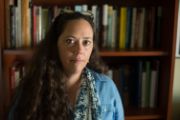 Ann K. Ferrell is currently Associate Professor of Folk Studies at Western Kentucky University. Her experience includes undergraduate and graduate teaching, publicly engaged folklore research and programming such as festivals and exhibits, and service as the Editor-in-Chief of the Journal of American Folklore (2016-2020). Much of her fieldwork has been with Kentucky farmers, resulting in publications such as Burley: Kentucky Tobacco in a New Century (University Press of Kentucky, 2013). She is co-authoring a book of case studies of debates about issues of representation in folklore studies in the 1970s and 80s. She currently serves on the Executive Board of the American Folklore Society.
Ann K. Ferrell is currently Associate Professor of Folk Studies at Western Kentucky University. Her experience includes undergraduate and graduate teaching, publicly engaged folklore research and programming such as festivals and exhibits, and service as the Editor-in-Chief of the Journal of American Folklore (2016-2020). Much of her fieldwork has been with Kentucky farmers, resulting in publications such as Burley: Kentucky Tobacco in a New Century (University Press of Kentucky, 2013). She is co-authoring a book of case studies of debates about issues of representation in folklore studies in the 1970s and 80s. She currently serves on the Executive Board of the American Folklore Society.
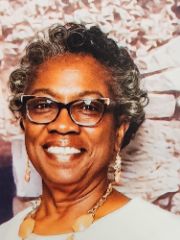 Mary A. Godfrey is an Associate Minister at Snow Hill Christian Church (Disciples of Christ), Mt. Willing Community, Ft. Deposit, Alabama. Mary earned a Bachelor’s in Christian Leadership from Tidewater Bible College in 2006, became a certified Evangelist in 2006, and became a licensed minister in 2013. Mary is a candidate for a Master of Divinity Degree from Lexington Theological Seminary, Lexington, KY. Mary’s love for outreach, community engagement, and spending time with the elders of her community led her to Snow Hill Christian Church and the Mt. Willing Quilters with Rev. Dr. Dale Braxton in 2017, who have become her extended family and support system. Mary has been married to Verdell for 43 years and has three adult children and four granddaughters.
Mary A. Godfrey is an Associate Minister at Snow Hill Christian Church (Disciples of Christ), Mt. Willing Community, Ft. Deposit, Alabama. Mary earned a Bachelor’s in Christian Leadership from Tidewater Bible College in 2006, became a certified Evangelist in 2006, and became a licensed minister in 2013. Mary is a candidate for a Master of Divinity Degree from Lexington Theological Seminary, Lexington, KY. Mary’s love for outreach, community engagement, and spending time with the elders of her community led her to Snow Hill Christian Church and the Mt. Willing Quilters with Rev. Dr. Dale Braxton in 2017, who have become her extended family and support system. Mary has been married to Verdell for 43 years and has three adult children and four granddaughters.
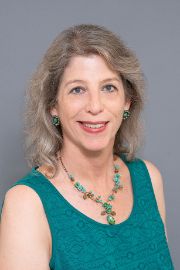 Laura Marcus Green is Folklife & Traditional Arts Director at the South Carolina Arts Commission, where she manages grant programs, conducts fieldwork, and co-develops projects with community partners, including the Folklife Field School, Communal Pen Writing Workshops, and a pilot creative aging series. Selected previous positions include: Folklife & Traditional Arts Director, McKissick Museum/University of South Carolina; Community Engagement Coordinator, Gallery of Conscience/Museum of International Folk Art; Program Associate, Fund for Folk Culture; and founding Coordinator of the Arts for New Immigrants Program, Immigrant and Refugee Community Organization, Portland, Oregon. From 2005-16, Green worked independently as a folklife fieldworker and researcher, writer, curator and consultant for the Louisiana Division of the Arts, South Carolina Arts Commission, Iowa Arts Council, New Mexico Arts, and the Idaho Commission on the Arts, among others.
Laura Marcus Green is Folklife & Traditional Arts Director at the South Carolina Arts Commission, where she manages grant programs, conducts fieldwork, and co-develops projects with community partners, including the Folklife Field School, Communal Pen Writing Workshops, and a pilot creative aging series. Selected previous positions include: Folklife & Traditional Arts Director, McKissick Museum/University of South Carolina; Community Engagement Coordinator, Gallery of Conscience/Museum of International Folk Art; Program Associate, Fund for Folk Culture; and founding Coordinator of the Arts for New Immigrants Program, Immigrant and Refugee Community Organization, Portland, Oregon. From 2005-16, Green worked independently as a folklife fieldworker and researcher, writer, curator and consultant for the Louisiana Division of the Arts, South Carolina Arts Commission, Iowa Arts Council, New Mexico Arts, and the Idaho Commission on the Arts, among others.
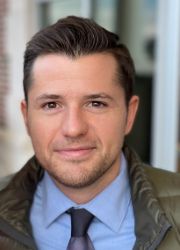 Zachary Greene is an East Tennessee native who works as the Director of Academic & Inclusive Excellence at Lincoln Memorial University’s CVM. He completed his bachelor’s at Lee University, his M.Ed. at Carson-Newman University, and is finishing an Ed.S. in Instructional Leadership. Through Fulbright, he spent the summer of 2017 living with and learning from indigenous communities in the Andes. A Spanish teacher for seven years, he created The Mountain Fiesta in 2016 with his high school students. The project is an ongoing initiative and annual festival that builds and maintains cultural bridges between diverse communities in the region. His work with his students aims to strengthen the social fabric of his community through sharing in the universal languages of art, music, dance, and food.
Zachary Greene is an East Tennessee native who works as the Director of Academic & Inclusive Excellence at Lincoln Memorial University’s CVM. He completed his bachelor’s at Lee University, his M.Ed. at Carson-Newman University, and is finishing an Ed.S. in Instructional Leadership. Through Fulbright, he spent the summer of 2017 living with and learning from indigenous communities in the Andes. A Spanish teacher for seven years, he created The Mountain Fiesta in 2016 with his high school students. The project is an ongoing initiative and annual festival that builds and maintains cultural bridges between diverse communities in the region. His work with his students aims to strengthen the social fabric of his community through sharing in the universal languages of art, music, dance, and food.
 Gregory Hansen is Professor of Folklore and English at Arkansas State University, where he also teaches in the Heritage Studies Ph.D. Program. He teaches courses in literature, folklore, field research, folk music, and southern culture. Hansen has completed public folklore projects for the Smithsonian Institution, Museum of Danish America, Florida Folklife Program, Kentucky Center for the Performing Arts, and other organizations. His research and publications center on folklore and education, public folklore, documentary media, and folk performances. He has produced a number of documentary videos and is the author of A Florida Fiddler: The Life and Times of Richard Seaman. He recently co-edited Sustaining Support for Intangible Cultural Heritage.
Gregory Hansen is Professor of Folklore and English at Arkansas State University, where he also teaches in the Heritage Studies Ph.D. Program. He teaches courses in literature, folklore, field research, folk music, and southern culture. Hansen has completed public folklore projects for the Smithsonian Institution, Museum of Danish America, Florida Folklife Program, Kentucky Center for the Performing Arts, and other organizations. His research and publications center on folklore and education, public folklore, documentary media, and folk performances. He has produced a number of documentary videos and is the author of A Florida Fiddler: The Life and Times of Richard Seaman. He recently co-edited Sustaining Support for Intangible Cultural Heritage.
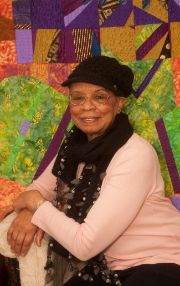 Peggie Hartwell is an American quilt-maker who focuses on the creation of “Story Quilts” to educate and inform the young. She is a founding member of the national Women of Color Quilters’ Network and her life and work have been the subject of profiles by the Smithsonian Institute and PBS's "Reading Rainbow" program. Ms. Hartwell has a B.A. in Theater from Queens College, New York, and a Certificate of Completion for Arts in Classrooms (Developing Strategies for Working with Students with Disabilities) from the South Carolina School for the Deaf and Blind. She has been a mentor in the SC Arts Commission’s Traditional Arts Apprenticeship Initiative, and has received the Jean Laney Harris Folk Heritage Award (2017), and a USA Fellowship (2022).
Peggie Hartwell is an American quilt-maker who focuses on the creation of “Story Quilts” to educate and inform the young. She is a founding member of the national Women of Color Quilters’ Network and her life and work have been the subject of profiles by the Smithsonian Institute and PBS's "Reading Rainbow" program. Ms. Hartwell has a B.A. in Theater from Queens College, New York, and a Certificate of Completion for Arts in Classrooms (Developing Strategies for Working with Students with Disabilities) from the South Carolina School for the Deaf and Blind. She has been a mentor in the SC Arts Commission’s Traditional Arts Apprenticeship Initiative, and has received the Jean Laney Harris Folk Heritage Award (2017), and a USA Fellowship (2022).
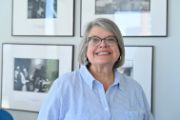 Teresa Hollingsworth (she/her) is the Director of Traditional Arts at South Arts. She directs the In These Mountains, Central Appalachian Folk Arts & Culture initiative, Traditional Arts Touring Grants, and fieldwork projects. Teresa serves as a leader in regional convenings including the former Folklorists in the South retreat, recently relaunched as a collaborative gathering as Folklife in the South. She was previously a staff member at the Florida Folklife Program, Maine Folklife Center, and Kentucky Folklife Program. She holds an MA in Folk Studies from Western Kentucky University. Teresa is a 2021 recipient of the Benjamin A. Botkin Prize for lifetime achievement in public folklore from The American Folklore Society. She recently joined the board of directors for the Center for Cultural Vibrancy.
Teresa Hollingsworth (she/her) is the Director of Traditional Arts at South Arts. She directs the In These Mountains, Central Appalachian Folk Arts & Culture initiative, Traditional Arts Touring Grants, and fieldwork projects. Teresa serves as a leader in regional convenings including the former Folklorists in the South retreat, recently relaunched as a collaborative gathering as Folklife in the South. She was previously a staff member at the Florida Folklife Program, Maine Folklife Center, and Kentucky Folklife Program. She holds an MA in Folk Studies from Western Kentucky University. Teresa is a 2021 recipient of the Benjamin A. Botkin Prize for lifetime achievement in public folklore from The American Folklore Society. She recently joined the board of directors for the Center for Cultural Vibrancy.
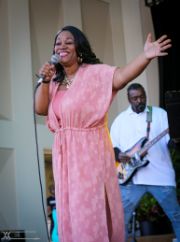 DieDra Hurdle-Ruff was born in Norfolk, Virginia and was part of a family group. Knowing she could sing, her dad put her out in the front as the lead singer. DieDra has been singing professionally since 1998. She has 22 Blues Awards and Nominations. She is internationally known. She was crowned by the North Florida Blues Society to be the Alabama Blues Queen. In 2018, she was inducted into the Alabama Blues Hall of Fame.
DieDra Hurdle-Ruff was born in Norfolk, Virginia and was part of a family group. Knowing she could sing, her dad put her out in the front as the lead singer. DieDra has been singing professionally since 1998. She has 22 Blues Awards and Nominations. She is internationally known. She was crowned by the North Florida Blues Society to be the Alabama Blues Queen. In 2018, she was inducted into the Alabama Blues Hall of Fame.
 Willa Johnson, Director of Film Department, has grown up in Letcher County and credits Appalshop for her career in youth education and media. She began her work with Appalshop as a member of the Appalachian Media Institute (AMI) in 2007 as a youth intern. She has worked with various nonprofits throughout Central Appalachia as an organizer, media consultant, and community engagement coordinator. She is a cofounder of the STAY Project and was named one of the Nation's Top 50 Fixers in 2019 by Grist.
Willa Johnson, Director of Film Department, has grown up in Letcher County and credits Appalshop for her career in youth education and media. She began her work with Appalshop as a member of the Appalachian Media Institute (AMI) in 2007 as a youth intern. She has worked with various nonprofits throughout Central Appalachia as an organizer, media consultant, and community engagement coordinator. She is a cofounder of the STAY Project and was named one of the Nation's Top 50 Fixers in 2019 by Grist.
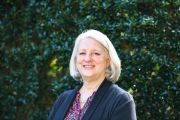 Anne Kimzey is a Folklorist for the Alabama State Council on the Arts, where she manages the Alabama Folk Arts Apprenticeship Program and the Literary Arts Program. She received her B.A. in Journalism from the University of North Carolina at Chapel Hill and later pursued graduate studies there in Folklore. In addition to managing grants programs at the Council, for the past 34 years she has researched and documented Alabama’s folk traditions, produced radio shows, exhibitions, festivals, and edited a variety of publications.
Anne Kimzey is a Folklorist for the Alabama State Council on the Arts, where she manages the Alabama Folk Arts Apprenticeship Program and the Literary Arts Program. She received her B.A. in Journalism from the University of North Carolina at Chapel Hill and later pursued graduate studies there in Folklore. In addition to managing grants programs at the Council, for the past 34 years she has researched and documented Alabama’s folk traditions, produced radio shows, exhibitions, festivals, and edited a variety of publications.
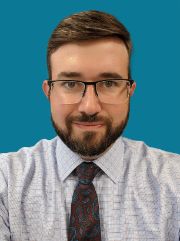 Elliot Knight is the Executive Director of the Alabama State Council on the Arts. An Opelika, Alabama native, Knight earned three degrees from The University of Alabama, including a Bachelor of Arts in visual communication from New College, a Master of Arts in American studies, and a PhD in interdisciplinary studies. Dr. Knight is a Blackburn Fellow, member of the Montgomery Rotary Club, and serves as a board member for the Alabama Humanities Alliance, Alabama Tourism Department Advisory Board, University of Alabama Community Affairs Board of Advisors, and the Montgomery Area Business Committee for the Arts. Dr. Knight serves as Treasurer and Chair of the Finance and Operations Committee for South Arts and is a member of the National Assembly of State Arts Agencies Planning and Budget Committee.
Elliot Knight is the Executive Director of the Alabama State Council on the Arts. An Opelika, Alabama native, Knight earned three degrees from The University of Alabama, including a Bachelor of Arts in visual communication from New College, a Master of Arts in American studies, and a PhD in interdisciplinary studies. Dr. Knight is a Blackburn Fellow, member of the Montgomery Rotary Club, and serves as a board member for the Alabama Humanities Alliance, Alabama Tourism Department Advisory Board, University of Alabama Community Affairs Board of Advisors, and the Montgomery Area Business Committee for the Arts. Dr. Knight serves as Treasurer and Chair of the Finance and Operations Committee for South Arts and is a member of the National Assembly of State Arts Agencies Planning and Budget Committee.
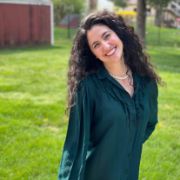 Roz V. Rini Larson is the Annual Meeting and Programs Director for the American Folklore Society. She has primary responsibility for AFS annual meeting planning and supports other programs and projects, including the jointly produced FITS Gathering. Roz started working for AFS as a graduate assistant in 2017 and has worked almost continuously for the organization since then on a variety of projects, assuming her current role upon completing her PhD in 2021. Originally from Northwest Indiana, she loves the Dunes National Lakeshore and a good potluck in equal measure. When she is not absorbed by the AFS annual meeting or continuing her ethnographic research projects, Roz likes to cook, spend time with family, and throw the frisbee for her scruffy dog Oscar.
Roz V. Rini Larson is the Annual Meeting and Programs Director for the American Folklore Society. She has primary responsibility for AFS annual meeting planning and supports other programs and projects, including the jointly produced FITS Gathering. Roz started working for AFS as a graduate assistant in 2017 and has worked almost continuously for the organization since then on a variety of projects, assuming her current role upon completing her PhD in 2021. Originally from Northwest Indiana, she loves the Dunes National Lakeshore and a good potluck in equal measure. When she is not absorbed by the AFS annual meeting or continuing her ethnographic research projects, Roz likes to cook, spend time with family, and throw the frisbee for her scruffy dog Oscar.
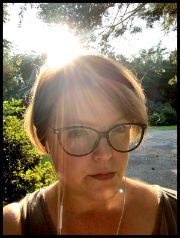 Kristin C. Law is the Art Programs & Marketing Director for Black Belt Treasures Cultural Arts Center in Camden, Alabama. She graduated with a BFA in Ceramics/Art History from the University of Montevallo, spent eight years as the Curator of Collections at the Hermitage Museum & Gardens and as Ceramics Instructor at the Hermitage Visual Arts School in Norfolk, Virginia. After moving home to Alabama in 2009, Kristin was re-introduced to Black Belt culture and artists, where the people, stories, traditions, art, and history of the region have inspired and shaped her desire to share the treasures of the Black Belt with the world. Kristin spent two years as the Black Belt Arts Initiative Coordinator at Black Belt Community Foundation, where she proudly served as Co-Director of the Black Belt 100 Lenses project.
Kristin C. Law is the Art Programs & Marketing Director for Black Belt Treasures Cultural Arts Center in Camden, Alabama. She graduated with a BFA in Ceramics/Art History from the University of Montevallo, spent eight years as the Curator of Collections at the Hermitage Museum & Gardens and as Ceramics Instructor at the Hermitage Visual Arts School in Norfolk, Virginia. After moving home to Alabama in 2009, Kristin was re-introduced to Black Belt culture and artists, where the people, stories, traditions, art, and history of the region have inspired and shaped her desire to share the treasures of the Black Belt with the world. Kristin spent two years as the Black Belt Arts Initiative Coordinator at Black Belt Community Foundation, where she proudly served as Co-Director of the Black Belt 100 Lenses project.
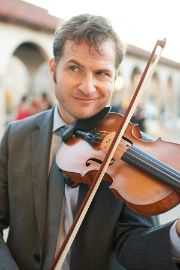 Panayotis (Paddy) League is a musicologist, composer, and performer specializing in the vernacular music and poetry traditions of Greece, Brazil, Ireland, and the American South. He is Assistant Professor of Ethnomusicology and Director of the Center for Music of the Americas at Florida State University, where he also directs Grupo Jaraguá, the FSU Brazilian music ensemble. In 2019 he was designated a Master Artist by the Florida Folklife Program for his work preserving and disseminating the traditional music and poetry of the island of Kalymnos in his home community of Tarpon Springs, Florida. His book, Echoes of the Great Catastrophe: Re-Sounding Anatolian Greekness in Diaspora, which explores the musical legacy of transnational Greek refugees from Asia Minor, was recently published by University of Michigan Press.
Panayotis (Paddy) League is a musicologist, composer, and performer specializing in the vernacular music and poetry traditions of Greece, Brazil, Ireland, and the American South. He is Assistant Professor of Ethnomusicology and Director of the Center for Music of the Americas at Florida State University, where he also directs Grupo Jaraguá, the FSU Brazilian music ensemble. In 2019 he was designated a Master Artist by the Florida Folklife Program for his work preserving and disseminating the traditional music and poetry of the island of Kalymnos in his home community of Tarpon Springs, Florida. His book, Echoes of the Great Catastrophe: Re-Sounding Anatolian Greekness in Diaspora, which explores the musical legacy of transnational Greek refugees from Asia Minor, was recently published by University of Michigan Press.
 Amanda Malloy is the Folklife Program Director of the McKissick Museum at the University of South Carolina in Columbia. She graduated with a B.A. in Liberal Studies from the University of Mississippi. She also received her M.A. from the University of Mississippi in Southern Studies, focusing on art history and southern photography. She has presented at various conferences and institutions, including the Southern Studies Conference at Auburn at Montgomery as well as the Center for the Study of Southern Culture. She is the Visual Arts Editor of Mississippi Folklife, an online publication of the Mississippi Arts Commission and has contributed to numerous publications including, The Beautiful Mysterious: The Extraordinary Gaze of William Eggleston.
Amanda Malloy is the Folklife Program Director of the McKissick Museum at the University of South Carolina in Columbia. She graduated with a B.A. in Liberal Studies from the University of Mississippi. She also received her M.A. from the University of Mississippi in Southern Studies, focusing on art history and southern photography. She has presented at various conferences and institutions, including the Southern Studies Conference at Auburn at Montgomery as well as the Center for the Study of Southern Culture. She is the Visual Arts Editor of Mississippi Folklife, an online publication of the Mississippi Arts Commission and has contributed to numerous publications including, The Beautiful Mysterious: The Extraordinary Gaze of William Eggleston.
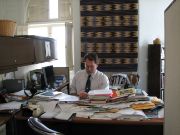 Bill Mansfield traces his interest in vernacular culture to when his mother taught him how to play the “juice harp.” This developed into a passion for the banjo and resulted in an NEA apprenticeship grant to study the 5-string with master musician Fred Cockerham. The apprenticeship led to Mansfield entering the University of North Carolina, in 1980, where he specialized in occupational folklore. Over the years he has worked as: a musician, an oral historian for the National Park Service, a museum curator, an independent folklorist, and as the folk arts specialist for the National Endowment for the Arts. After 20 years of federal service, Mansfield will retire at the end of July and return to North Carolina with his wife, historian Lu Ann Jones.
Bill Mansfield traces his interest in vernacular culture to when his mother taught him how to play the “juice harp.” This developed into a passion for the banjo and resulted in an NEA apprenticeship grant to study the 5-string with master musician Fred Cockerham. The apprenticeship led to Mansfield entering the University of North Carolina, in 1980, where he specialized in occupational folklore. Over the years he has worked as: a musician, an oral historian for the National Park Service, a museum curator, an independent folklorist, and as the folk arts specialist for the National Endowment for the Arts. After 20 years of federal service, Mansfield will retire at the end of July and return to North Carolina with his wife, historian Lu Ann Jones.
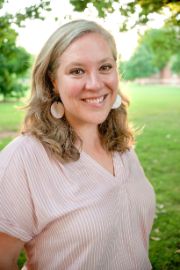 Sarah Milligan is a Professor and Head of the Oklahoma Oral History Research Program (OOHRP) at the Oklahoma State University Library, where she holds the Hyle Family Endowed Professorship and oversees the production, access, and preservation of the 2,000+ interviews in the OOHRP collection. She has worked extensively in oral history outreach, including providing training for new interview production as well as technical assistance to oral history collection holders throughout the country. Milligan has served the Oral History Association (OHA) broadly, including co-chairing the 2018 OHA Principles and Best Practices Task Force, serving on the 2020 Remote Interviewing Task Force, and the OHA Council (2019-2022). Milligan co-chaired the Local Arrangements Committee for the American Folklore Society annual meeting in Tulsa in 2020 and 2022.
Sarah Milligan is a Professor and Head of the Oklahoma Oral History Research Program (OOHRP) at the Oklahoma State University Library, where she holds the Hyle Family Endowed Professorship and oversees the production, access, and preservation of the 2,000+ interviews in the OOHRP collection. She has worked extensively in oral history outreach, including providing training for new interview production as well as technical assistance to oral history collection holders throughout the country. Milligan has served the Oral History Association (OHA) broadly, including co-chairing the 2018 OHA Principles and Best Practices Task Force, serving on the 2020 Remote Interviewing Task Force, and the OHA Council (2019-2022). Milligan co-chaired the Local Arrangements Committee for the American Folklore Society annual meeting in Tulsa in 2020 and 2022.
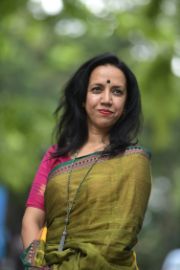 Sushma Mohan is an Indian classical dancer, musician, and choreographer and the Founder-Secretary of SOORYA FOUNDATION, a nonprofit founded to preserve, protect, and promote traditional Indian performing arts in Los Angeles and Cumming, GA. A performer and teacher for more than three decades, Sushma is a panelist for the Georgia Council for the Arts, California Arts Council, and Los Angeles County Department of Arts and Culture. She has been awarded grants by the Forsyth County Arts Alliance and Georgia Council for the Arts for artistic presentation and the Dancer-Choreographer award by the City of Los Angeles Department of Cultural Affairs. Sushma is the curator of the Los Angeles Indian Dance Festival in LA and North Georgia Indian Dance Fest in GA, both free events that attract hundreds of people annually.
Sushma Mohan is an Indian classical dancer, musician, and choreographer and the Founder-Secretary of SOORYA FOUNDATION, a nonprofit founded to preserve, protect, and promote traditional Indian performing arts in Los Angeles and Cumming, GA. A performer and teacher for more than three decades, Sushma is a panelist for the Georgia Council for the Arts, California Arts Council, and Los Angeles County Department of Arts and Culture. She has been awarded grants by the Forsyth County Arts Alliance and Georgia Council for the Arts for artistic presentation and the Dancer-Choreographer award by the City of Los Angeles Department of Cultural Affairs. Sushma is the curator of the Los Angeles Indian Dance Festival in LA and North Georgia Indian Dance Fest in GA, both free events that attract hundreds of people annually.
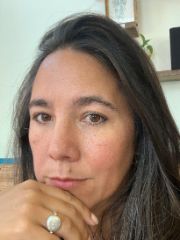 Monica Mohindra is the Director of the Veterans History Project of the American Folklife Center at the Library of Congress. An open archive of U.S. Veterans’ first-person narratives, it includes over 115,000 collections (and growing), voluntarily donated by individuals across the country. It was founded through unanimous Congressional mandate in 2000. Born in India, Monica is the spouse of a Navy veteran whose father and grandfathers also served in the U.S. military. With the Project for 17 years, she previously led collections development staff. She coordinated major initiatives with the National Museum of the American Indian, the National Endowment for the Humanities, PBS, Ken Burns, the HISTORY Channel, the US Department of Veterans Affairs Center for Women Veterans, and Members of Congress, among others.
Monica Mohindra is the Director of the Veterans History Project of the American Folklife Center at the Library of Congress. An open archive of U.S. Veterans’ first-person narratives, it includes over 115,000 collections (and growing), voluntarily donated by individuals across the country. It was founded through unanimous Congressional mandate in 2000. Born in India, Monica is the spouse of a Navy veteran whose father and grandfathers also served in the U.S. military. With the Project for 17 years, she previously led collections development staff. She coordinated major initiatives with the National Museum of the American Indian, the National Endowment for the Humanities, PBS, Ken Burns, the HISTORY Channel, the US Department of Veterans Affairs Center for Women Veterans, and Members of Congress, among others.
 Lauren Murphy is a sociology-minded Southern folk herbalist, heirloom gardener, seed-saver, sometimes farmer, and planting by the signs enthusiast. Lauren can often be found plumbing the depths of the Southern tradition to find the hyper-local, place-based wisdom of our agricultural past and present, and the magic that can be found when we belong to our places.
Lauren Murphy is a sociology-minded Southern folk herbalist, heirloom gardener, seed-saver, sometimes farmer, and planting by the signs enthusiast. Lauren can often be found plumbing the depths of the Southern tradition to find the hyper-local, place-based wisdom of our agricultural past and present, and the magic that can be found when we belong to our places.
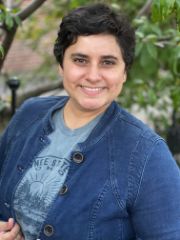 Cassie Rosita Patterson is the Special Projects Consultant for the American Folklore Society. She supports communications and focuses on special projects, such as professional development and outreach activities. Cassie also serves as the Project Manager for the Folk Arts Partnership Professional Development Institute, which is a collaborative project between AFS and the National Assembly of State Arts Agencies and the National Endowment for the Arts. Cassie is the founder and Executive Director of Southern Ohio Folklife, a nonprofit 501(c)(3) organization established in 2020 that supports, documents, and networks folklife in the region.
Cassie Rosita Patterson is the Special Projects Consultant for the American Folklore Society. She supports communications and focuses on special projects, such as professional development and outreach activities. Cassie also serves as the Project Manager for the Folk Arts Partnership Professional Development Institute, which is a collaborative project between AFS and the National Assembly of State Arts Agencies and the National Endowment for the Arts. Cassie is the founder and Executive Director of Southern Ohio Folklife, a nonprofit 501(c)(3) organization established in 2020 that supports, documents, and networks folklife in the region.
 Ethan Payne is a documentary filmmaker based in Atlanta, Ga. His work has been featured in Pitchfork, Stereogum, Oxford American, ArtsATL, Southern Foodways Alliance, and The Bitter Southerner. His award-winning short documentaries have made international festival rounds and most recently were featured at the National Gallery in Washington, DC. His first feature-length documentary "The Green Flash" is in post-production.
Ethan Payne is a documentary filmmaker based in Atlanta, Ga. His work has been featured in Pitchfork, Stereogum, Oxford American, ArtsATL, Southern Foodways Alliance, and The Bitter Southerner. His award-winning short documentaries have made international festival rounds and most recently were featured at the National Gallery in Washington, DC. His first feature-length documentary "The Green Flash" is in post-production.
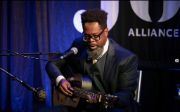 Lamont Jack Pearley is the Executive Director/Founder of Jack Dappa Blues Heritage Preservation Foundation. He’s a regular host and fan-favorite on Tubi’s Scariest Monsters series and hosts The African American Folklorist on Western Kentucky University Public Radio and NPR, and is also founder/editor of The African American Folklorist magazine. He’s an applied folklorist, African American traditional music historian, and blues practitioner inducted into the New York Blues Hall of Fame as Great Blues Historian, and TV/Radio Producer, and Great Blues Artist.
Lamont Jack Pearley is the Executive Director/Founder of Jack Dappa Blues Heritage Preservation Foundation. He’s a regular host and fan-favorite on Tubi’s Scariest Monsters series and hosts The African American Folklorist on Western Kentucky University Public Radio and NPR, and is also founder/editor of The African American Folklorist magazine. He’s an applied folklorist, African American traditional music historian, and blues practitioner inducted into the New York Blues Hall of Fame as Great Blues Historian, and TV/Radio Producer, and Great Blues Artist.
 Viola Ratcliffe is an arts administrator and educator, whose work explores the intersection of art and activism. A native of Montgomery, Alabama; she earned her undergraduate degree in Art History from the University of Alabama and her master’s degree in Art History from Bowling Green State University. Viola’s career in the nonprofit sector spans over ten years and she has worked for several arts and culture institutions including the Montgomery Museum of Fine Arts, the Troy University Rosa Parks Museum and Minnetrista Museum and Gardens. In 2022 Viola served as interim director of Bib & Tucker Sew-Op, a position that she held until 2023. In addition to being the Sew-Op's Programming Strategist, Viola works as Create Birmingham’s Community Engagement Manager.
Viola Ratcliffe is an arts administrator and educator, whose work explores the intersection of art and activism. A native of Montgomery, Alabama; she earned her undergraduate degree in Art History from the University of Alabama and her master’s degree in Art History from Bowling Green State University. Viola’s career in the nonprofit sector spans over ten years and she has worked for several arts and culture institutions including the Montgomery Museum of Fine Arts, the Troy University Rosa Parks Museum and Minnetrista Museum and Gardens. In 2022 Viola served as interim director of Bib & Tucker Sew-Op, a position that she held until 2023. In addition to being the Sew-Op's Programming Strategist, Viola works as Create Birmingham’s Community Engagement Manager.
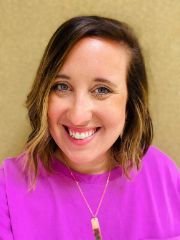 Lauren Richards has been teaching Culinary Arts and Event Planning at Albertville High School since 2012. Prior to her teaching career she was a Wedding and Event Specialist at Renaissance Ross Bridge Golf Resort and Spa. Albertville City Schools is a very diverse system, with multiple opportunities for students to explore while obtaining an education. Lauren enjoys investing in her students, and helping them discover their passion and purpose outside of school. She has an award winning program with several state titles, and national recognition. She embraces cultural diversity and applies several techniques to build connections in the classroom and community. Outside of school, Lauren enjoys spending time with her family, her husband and their 6 children, traveling, and reading.
Lauren Richards has been teaching Culinary Arts and Event Planning at Albertville High School since 2012. Prior to her teaching career she was a Wedding and Event Specialist at Renaissance Ross Bridge Golf Resort and Spa. Albertville City Schools is a very diverse system, with multiple opportunities for students to explore while obtaining an education. Lauren enjoys investing in her students, and helping them discover their passion and purpose outside of school. She has an award winning program with several state titles, and national recognition. She embraces cultural diversity and applies several techniques to build connections in the classroom and community. Outside of school, Lauren enjoys spending time with her family, her husband and their 6 children, traveling, and reading.
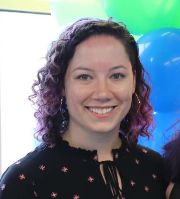 Sarah I. Rodriguez (she/her) works as the lead Oral Historian for the Southern Foodways Alliance, based on the University of Mississippi's campus in Oxford, Mississippi. She holds a B.A. in History and a minor in Economics from William & Mary and an M.A. in History with a Public History Concentration from the University of West Georgia. Her Master's thesis is titled Private Lives, Public History: The Sex Trade in Natchez, Mississippi during the Civil Rights Era, 1950–1982 and is available on ProQuest. Her work has spanned multiple areas of the public history field and various areas of historical research, including museum studies, tourism, LGBTQ+ history, and archival work. She has presented on public history and oral history at the Southwest Oral History Association Annual Conference (2018), the inaugural Queer History Conference (2019), and the American Historical Association's Annual Meeting (2022). In her work, Rodriguez aims to educate the public about the complexities of the past and the humanity in history, in order to make active change in the world today toward justice and equity.
Sarah I. Rodriguez (she/her) works as the lead Oral Historian for the Southern Foodways Alliance, based on the University of Mississippi's campus in Oxford, Mississippi. She holds a B.A. in History and a minor in Economics from William & Mary and an M.A. in History with a Public History Concentration from the University of West Georgia. Her Master's thesis is titled Private Lives, Public History: The Sex Trade in Natchez, Mississippi during the Civil Rights Era, 1950–1982 and is available on ProQuest. Her work has spanned multiple areas of the public history field and various areas of historical research, including museum studies, tourism, LGBTQ+ history, and archival work. She has presented on public history and oral history at the Southwest Oral History Association Annual Conference (2018), the inaugural Queer History Conference (2019), and the American Historical Association's Annual Meeting (2022). In her work, Rodriguez aims to educate the public about the complexities of the past and the humanity in history, in order to make active change in the world today toward justice and equity.
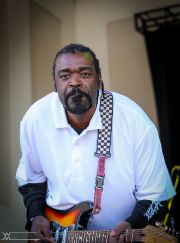 Keithen Ruff started out in his family Gospel group in the 80's. He began playing with local bands as the guitar player. Keith is also an amazing music and movie producer. In the 90's, he produced music that played on MTV. In 1995, he began playing lead guitar for two time Grammy Winner, Bobby Rush. He began producing music on him, which led to Bobby's first hit called “Booger Bear.” He has gone on to travel to 24 countries with Bobby Rush. In 2007, Keith married DieDra. He produced her first CD called “Overcoming Hurdles.” DieDra received several Award Nominations for her hit “Hip Swingin Blues.” That song was featured on a nationally syndicated radio show called “Tom Joyner Morning Show.” It later created a national line dance. Keithen has produced six CDs on DieDra, which has led to 22 Blues Awards and Nominations. Keith had a vision of a movie, shared it with DieDra, and she wrote it in three weeks. The movie is called “Frienemy for Life” and is due to premiere in July 2023. Keithen just started his non-profit organization called “Ruff Pro Entertainment,” geared towards helping children in his city to learn more about movie production and music.
Keithen Ruff started out in his family Gospel group in the 80's. He began playing with local bands as the guitar player. Keith is also an amazing music and movie producer. In the 90's, he produced music that played on MTV. In 1995, he began playing lead guitar for two time Grammy Winner, Bobby Rush. He began producing music on him, which led to Bobby's first hit called “Booger Bear.” He has gone on to travel to 24 countries with Bobby Rush. In 2007, Keith married DieDra. He produced her first CD called “Overcoming Hurdles.” DieDra received several Award Nominations for her hit “Hip Swingin Blues.” That song was featured on a nationally syndicated radio show called “Tom Joyner Morning Show.” It later created a national line dance. Keithen has produced six CDs on DieDra, which has led to 22 Blues Awards and Nominations. Keith had a vision of a movie, shared it with DieDra, and she wrote it in three weeks. The movie is called “Frienemy for Life” and is due to premiere in July 2023. Keithen just started his non-profit organization called “Ruff Pro Entertainment,” geared towards helping children in his city to learn more about movie production and music.
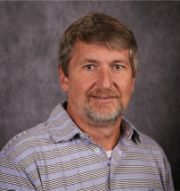 Jason Russell is a north Alabama traditional decoy carver who was introduced to duck hunting while in high school. As his passion for waterfowl hunting developed, he began researching the history of water fowling across America. Jason’s interest to carve decoys was sparked through reading about how the old timers were making and hunting over large numbers of handmade decoys. Unable to buy wooden birds, he decided it would be more affordable to carve his own. He carved his first decoy in 1995. He has enjoyed teaching his children to carve along with friends and others who are interested in keeping this tradition alive. Carving his own decoys enables him to appreciate the standards of the tradition that was set many years ago.
Jason Russell is a north Alabama traditional decoy carver who was introduced to duck hunting while in high school. As his passion for waterfowl hunting developed, he began researching the history of water fowling across America. Jason’s interest to carve decoys was sparked through reading about how the old timers were making and hunting over large numbers of handmade decoys. Unable to buy wooden birds, he decided it would be more affordable to carve his own. He carved his first decoy in 1995. He has enjoyed teaching his children to carve along with friends and others who are interested in keeping this tradition alive. Carving his own decoys enables him to appreciate the standards of the tradition that was set many years ago.
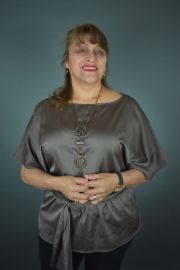 Mónica Sánchez was born and raised in Mexico City and has always loved acting. In 1989, she studied theater for three years at INBAC in Cuernavaca, Morelos, Mexico. She moved to Memphis, TN, in 1995. By 1999 she directed a Christmas play and a children's play, both in Spanish. That same year, she introduced the Day of the Dead celebration to the Memphis community. In 2010, she participated in the first Spanish version of The Vagina Monologues in Memphis, TN. She's the Co-Founder and Artistic Director of Cazateatro Bilingual Theater Group. With more than 30 productions on her list, she co-organizes the Afro-Latino Week, Latin Fest, and Day of the Dead Parade & Festival. “The performing arts are the instrument we use to unite and heal the community.”
Mónica Sánchez was born and raised in Mexico City and has always loved acting. In 1989, she studied theater for three years at INBAC in Cuernavaca, Morelos, Mexico. She moved to Memphis, TN, in 1995. By 1999 she directed a Christmas play and a children's play, both in Spanish. That same year, she introduced the Day of the Dead celebration to the Memphis community. In 2010, she participated in the first Spanish version of The Vagina Monologues in Memphis, TN. She's the Co-Founder and Artistic Director of Cazateatro Bilingual Theater Group. With more than 30 productions on her list, she co-organizes the Afro-Latino Week, Latin Fest, and Day of the Dead Parade & Festival. “The performing arts are the instrument we use to unite and heal the community.”
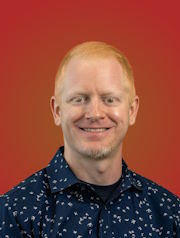 Ivan Schustak oversees the communications and fundraising activities for South Arts. Prior to joining South Arts, Ivan served as Marketing and Communications Manager with the Pasadena Symphony and POPS and held the inaugural position of Guest Service Manager at Phoenix’s new Musical Instrument Museum. Ivan has also held positions with the Georgia Institute of Technology Office of the Arts, Arizona Opera, and the Del E. Webb Center for the Performing Arts. As a formerly active performer, Ivan specialized in the euphonium and trombone, holding first-chair positions in the Rutgers University Wind Ensemble and the Rutgers University Jazz Ensemble II. Ivan holds a BM in Music Education from Rutgers University, and an MA in Arts Management from Claremont Graduate University.
Ivan Schustak oversees the communications and fundraising activities for South Arts. Prior to joining South Arts, Ivan served as Marketing and Communications Manager with the Pasadena Symphony and POPS and held the inaugural position of Guest Service Manager at Phoenix’s new Musical Instrument Museum. Ivan has also held positions with the Georgia Institute of Technology Office of the Arts, Arizona Opera, and the Del E. Webb Center for the Performing Arts. As a formerly active performer, Ivan specialized in the euphonium and trombone, holding first-chair positions in the Rutgers University Wind Ensemble and the Rutgers University Jazz Ensemble II. Ivan holds a BM in Music Education from Rutgers University, and an MA in Arts Management from Claremont Graduate University.
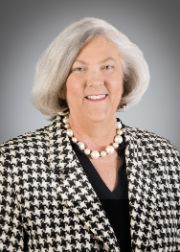 Nancy L. Smith began her fair experience in the home and craft department of the South Carolina State Fair. She assumed a full-time position in 2000, as director of entertainment and exhibits. She was promoted to Assistant Manager in February of 2008 and in January of 2018, assumed leadership of the fair as the Secretary/Treasurer General Manager. Smith is involved in the International Association of Fairs and Expositions (IAFE), earning her Certified Fair Executive designation in 2006. She served on the IAFE board as Zone 2 Director, representing eight states in the southeast. Smith served on the Executive Committee of the IAFE and as its Chair in 2020. Currently, she is the President of the South Carolina Association of Fairs.
Nancy L. Smith began her fair experience in the home and craft department of the South Carolina State Fair. She assumed a full-time position in 2000, as director of entertainment and exhibits. She was promoted to Assistant Manager in February of 2008 and in January of 2018, assumed leadership of the fair as the Secretary/Treasurer General Manager. Smith is involved in the International Association of Fairs and Expositions (IAFE), earning her Certified Fair Executive designation in 2006. She served on the IAFE board as Zone 2 Director, representing eight states in the southeast. Smith served on the Executive Committee of the IAFE and as its Chair in 2020. Currently, she is the President of the South Carolina Association of Fairs.
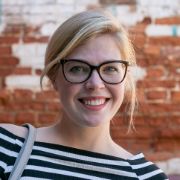 Olivia Terenzio is the executive director of Project Threadways, a 501(c)(3) nonprofit that records, studies, and interprets history, community, and power through the lens of fashion and textiles. She also works in editorial and marketing for the Southern Foodways Alliance, a nonprofit organization that documents, studies, and explores the diverse food cultures of the changing American South. Terenzio holds an M.A. in Southern Studies from the University of Mississippi and a B.S. from Northwestern University's Medill School of Journalism.
Olivia Terenzio is the executive director of Project Threadways, a 501(c)(3) nonprofit that records, studies, and interprets history, community, and power through the lens of fashion and textiles. She also works in editorial and marketing for the Southern Foodways Alliance, a nonprofit organization that documents, studies, and explores the diverse food cultures of the changing American South. Terenzio holds an M.A. in Southern Studies from the University of Mississippi and a B.S. from Northwestern University's Medill School of Journalism.
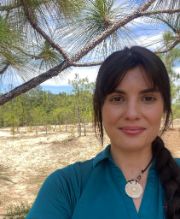 Sehoy Thrower earned a degree in Environmental Science and gained hands-on experience with advocacy and nonprofits before returning home to her family in the Poarch Creek community. She soon found work at the tribe in the Community Garden, and then as a supervisor of the Tribal Youth Conservation Corps. Sehoy is now the Environmental Protection Specialist for the Poarch Band of Creek Indians, a job that mostly involves water quality and wetlands. In her own time, she supports regenerative agriculture, Creek foodways, and deepening relationships with the natural world to protect the resources that go hand-in-hand with revitalization of Creek culture.
Sehoy Thrower earned a degree in Environmental Science and gained hands-on experience with advocacy and nonprofits before returning home to her family in the Poarch Creek community. She soon found work at the tribe in the Community Garden, and then as a supervisor of the Tribal Youth Conservation Corps. Sehoy is now the Environmental Protection Specialist for the Poarch Band of Creek Indians, a job that mostly involves water quality and wetlands. In her own time, she supports regenerative agriculture, Creek foodways, and deepening relationships with the natural world to protect the resources that go hand-in-hand with revitalization of Creek culture.
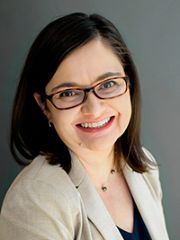 Jessica Anderson Turner is the Executive Director of the American Folklore Society, where she nurtures a broad network of folklorists working in universities, public institutions, and nonprofit organizations. Her work bridges academic and public folklore, ethnomusicology, museums, and heritage studies; she previously served as director of the Smithsonian-affiliate Birthplace of Country Music Museum (Bristol, Tennessee/Virginia) where she helped secure funding for the museum’s construction, led the museum’s interpretive design and development, and was a key advocate for the Museum’s partnerships within its local community. Turner received her PhD in Folklore and Ethnomusicology from Indiana University, and her projects have resulted in written works, exhibitions, media productions, workshops, festivals, presentations and a wide variety of community programs. Raised in southwest Virginia, she's happiest in the mountains and believes in the power of tradition, and a good biscuit, in bringing communities together.
Jessica Anderson Turner is the Executive Director of the American Folklore Society, where she nurtures a broad network of folklorists working in universities, public institutions, and nonprofit organizations. Her work bridges academic and public folklore, ethnomusicology, museums, and heritage studies; she previously served as director of the Smithsonian-affiliate Birthplace of Country Music Museum (Bristol, Tennessee/Virginia) where she helped secure funding for the museum’s construction, led the museum’s interpretive design and development, and was a key advocate for the Museum’s partnerships within its local community. Turner received her PhD in Folklore and Ethnomusicology from Indiana University, and her projects have resulted in written works, exhibitions, media productions, workshops, festivals, presentations and a wide variety of community programs. Raised in southwest Virginia, she's happiest in the mountains and believes in the power of tradition, and a good biscuit, in bringing communities together.
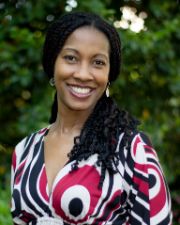 Joy Young, Ph.D. is Vice President of Programs where she is an active contributor of vision and leadership to staff who deliver 20-plus programs and services to both the regional and national arts and cultural field. Joy’s experience in the arts includes Executive Director of a local arts agency in Jacksonville, Florida, Director of Administration and Operations at the South Carolina Arts Commission, vocalist and arts entrepreneur, and adjunct faculty at Winthrop University’s Master of Arts in Arts Administration. Throughout her career, Joy’s expertise has resulted in the implementation of innovative programs and services, and the cultivation of relationships to create new opportunities and increase revenue. Her favorite quote is “God respects me when I work, but he loves me when I sing.” -Tagore.
Joy Young, Ph.D. is Vice President of Programs where she is an active contributor of vision and leadership to staff who deliver 20-plus programs and services to both the regional and national arts and cultural field. Joy’s experience in the arts includes Executive Director of a local arts agency in Jacksonville, Florida, Director of Administration and Operations at the South Carolina Arts Commission, vocalist and arts entrepreneur, and adjunct faculty at Winthrop University’s Master of Arts in Arts Administration. Throughout her career, Joy’s expertise has resulted in the implementation of innovative programs and services, and the cultivation of relationships to create new opportunities and increase revenue. Her favorite quote is “God respects me when I work, but he loves me when I sing.” -Tagore.
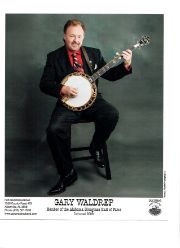 Gary Waldrep grew up on a family farm near Boaz, Alabama, absorbing Sand Mountain’s musical traditions from his mother’s family, the McCulloughs. When Gary was five, one of his uncles began teaching him the mandolin. He eventually mastered the fiddle and guitar as well, but is best known for his skill as a banjo player. In 1990, his album Vintage Bluegrass received a Grammy nomination. As leader of the Gary Waldrep Band, he maintains an active national touring schedule. For many years, Gary hosted his own Festival on the Farm, and now organizes an annual Camp and Jam event at his farm every September. He continues to work with students, including participating in the Alabama State Council on the Arts Touring Artist program in schools and Folk Arts Apprenticeship program. For his many career accomplishments and service, Boaz High School inducted Gary Waldrep into their Wall of Fame in 2017, a hometown honor that holds special meaning for him.
Gary Waldrep grew up on a family farm near Boaz, Alabama, absorbing Sand Mountain’s musical traditions from his mother’s family, the McCulloughs. When Gary was five, one of his uncles began teaching him the mandolin. He eventually mastered the fiddle and guitar as well, but is best known for his skill as a banjo player. In 1990, his album Vintage Bluegrass received a Grammy nomination. As leader of the Gary Waldrep Band, he maintains an active national touring schedule. For many years, Gary hosted his own Festival on the Farm, and now organizes an annual Camp and Jam event at his farm every September. He continues to work with students, including participating in the Alabama State Council on the Arts Touring Artist program in schools and Folk Arts Apprenticeship program. For his many career accomplishments and service, Boaz High School inducted Gary Waldrep into their Wall of Fame in 2017, a hometown honor that holds special meaning for him.
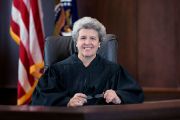 Susan Russ Walker retired from 26 years of service as a United States Magistrate Judge for the Middle District of Alabama in 2022. She holds B.A. degrees from Eckerd College and Oxford University, which she attended on a Rhodes Scholarship. She earned a J.D. at Yale Law School and clerked for Judge Frank M. Johnson, Jr. on the Eleventh Circuit Court of Appeals in Montgomery, Alabama. Since 2018, Judge Walker has collaborated with a Black church in rural Lowndes County to restore an 1843 church building constructed by enslaved workers and pastored by her great-great-grandfather, a slaveholder. The project’s objective is truth and reconciliation; it seeks to recognize the antebellum church’s support for slavery and tell the extraordinary story of Black resistance. Out of this work, Judge Walker and the Lowndes County Community Life Center co-created the Sew Their Names quilt project, which memorializes enslaved persons listed on local church registers and fosters dialogue about difficult history through the traditional art of quilting.
Susan Russ Walker retired from 26 years of service as a United States Magistrate Judge for the Middle District of Alabama in 2022. She holds B.A. degrees from Eckerd College and Oxford University, which she attended on a Rhodes Scholarship. She earned a J.D. at Yale Law School and clerked for Judge Frank M. Johnson, Jr. on the Eleventh Circuit Court of Appeals in Montgomery, Alabama. Since 2018, Judge Walker has collaborated with a Black church in rural Lowndes County to restore an 1843 church building constructed by enslaved workers and pastored by her great-great-grandfather, a slaveholder. The project’s objective is truth and reconciliation; it seeks to recognize the antebellum church’s support for slavery and tell the extraordinary story of Black resistance. Out of this work, Judge Walker and the Lowndes County Community Life Center co-created the Sew Their Names quilt project, which memorializes enslaved persons listed on local church registers and fosters dialogue about difficult history through the traditional art of quilting.
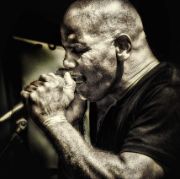 Jock Webb was born in Rosedale, Alabama, well-known as an area for musicians looking for resting places while traveling. Growing up there, Jock listened to a wide range of musicians, such as Cleve Eaton, John Lee Hooker, William King of the Commodores, and Sonny Boy Williams. This exposure planted a seed that would blossom during his twenties, when he got his first harmonica. Jock’s style is reminiscent of the traditions of the blues, the juke joints, and the down home style of the Alabama Black Belt. He is a veteran of the U.S. Coast Guard and today works on a rural cooperative in Pickens County, Alabama.
Jock Webb was born in Rosedale, Alabama, well-known as an area for musicians looking for resting places while traveling. Growing up there, Jock listened to a wide range of musicians, such as Cleve Eaton, John Lee Hooker, William King of the Commodores, and Sonny Boy Williams. This exposure planted a seed that would blossom during his twenties, when he got his first harmonica. Jock’s style is reminiscent of the traditions of the blues, the juke joints, and the down home style of the Alabama Black Belt. He is a veteran of the U.S. Coast Guard and today works on a rural cooperative in Pickens County, Alabama.
 Jai Williams is an M.F.A student and southern photographer currently based in Mississippi. She received a Master of Arts in Southern Studies from the University of Mississippi. Previously a Nathalie Dupree Graduate Fellow as well as Fullerton Fellow, her work focuses on researching southern foodways through the lens of the African diaspora.
Jai Williams is an M.F.A student and southern photographer currently based in Mississippi. She received a Master of Arts in Southern Studies from the University of Mississippi. Previously a Nathalie Dupree Graduate Fellow as well as Fullerton Fellow, her work focuses on researching southern foodways through the lens of the African diaspora.